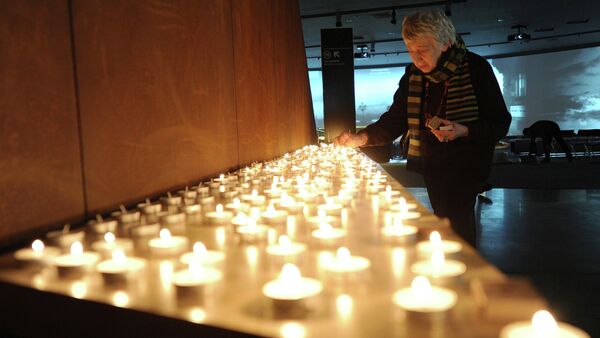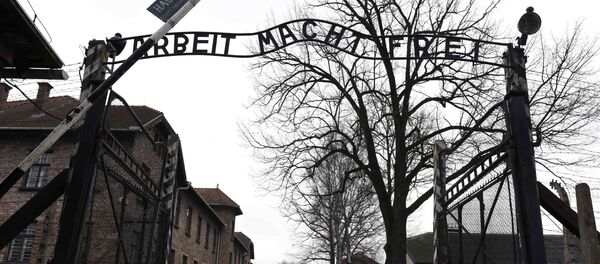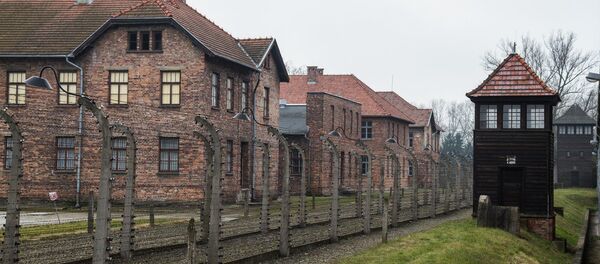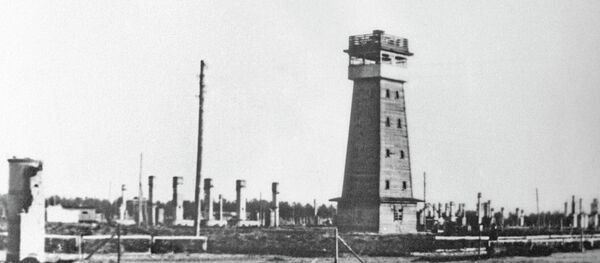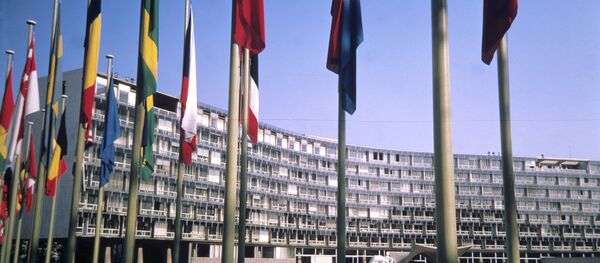The word "Holocaust" is derived from the ancient Greek word "Holocaustosis" meaning "Whole" and "Burnt" and "Sacrifice." Today, this word is used to denote actions taken by Nazi Germany, its allies and accomplices in the persecution and extermination between 1933 and 1945 of 6 million European citizens, most of whom were members of the Jewish faith.
This term was first used by writer and Nobel Prize winner Eli Wiesel, in reference to gas chambers and crematoriums in Nazi extermination camps. In 1978, the United States NBC television network broadcast a four-part television miniseries titled "Holocaust." Since then, the term Holocaust has been actively used by various museums, memorials and educational centers. Israel and some other countries also use the term Shoax, meaning "Holocaust of European Jewry."
January 27 was chosen because it was on that day in 1945 that the Soviet Red Army liberated Auschwitz-Birkenau, the largest Nazi extermination camp, located in Poland, where between 1.5 and 4 million people were estimated to have been killed. The exact number of Auschwitz victims will never be known, because many documents were destroyed, and Nazis did not keep records of those sent to death immediately upon arrival. Documents of the International Military Tribunal in Nuremberg testify that 2.8 million European citizens were killed in Auschwitz, with those of the Jewish faith accounting for approximately 90 percent.
The November 1, 2005, resolution adopted by the UN General Assembly on holocaust remembrance called on member countries to create educational programs to preserve the memory of the Holocaust, and provide for education and transparency so as prevent future acts of genocide.
The resolution reads, in part: "The Holocaust, which resulted in the murder of one third of the Jewish people, along with countless members of other minorities, will forever be a warning to all people of the dangers of hatred, bigotry, racism and prejudice."
Many countries have built memorials and museums to commemorate the millions killed by the Nazis, among them The Yad Vashem Museum in Jerusalem, The Center of Contemporary Jewish Documentation in Paris, The Anne Frank Museum in Amsterdam, The Holocaust Memorial Museum in Washington. There is also a museum in memory of 1.5 million Jewish children in Hiroshima and the Museum of Jewish Heritage and Holocaust in Moscow.
Since 2005, a series of high-level events, called International "Let My People Live!" forums have been held to provide objective historical knowledge of the events of World War II and to preserve the memory of the horrors of the Holocaust.
On September 27, 2006, Kiev hosted the Second International "Let My People Live!" forum, along with over 40 official delegations, to commemorate the 65th anniversary of the 1941 Babi Yar massacre near Kiev.
On January 27, 2010, Krakow hosted the Third International "Let My People Live!" forum commemorating the 65th anniversary of the liberation of inmates of the Auschwitz-Birkenau Nazi concentration camp by Soviet soldiers.
On January 26-27, 2015, Prague and Terezin in the Czech Republic will host the Fourth International "Let My People Live!" forum commemorating the 70th anniversary of the liberation of inmates of Nazi extermination camps.
In addition to paying tribute to survivors and keeping the memory of the Holocaust alive so as to prevent another event like it, International Holocaust Remembrance Day is a call to action. for the entire international community, and every person individually, to refuse any and all forms of bigotry, intolerance and racism.

